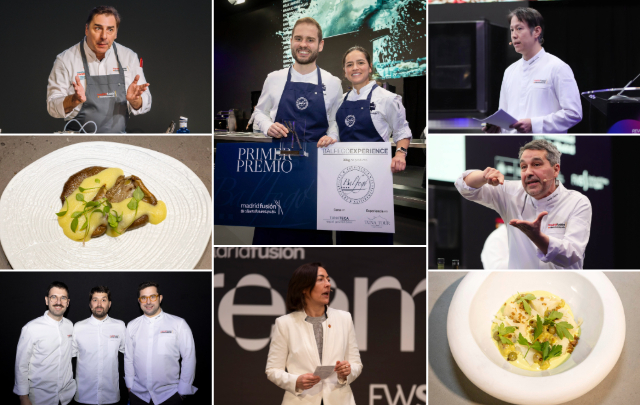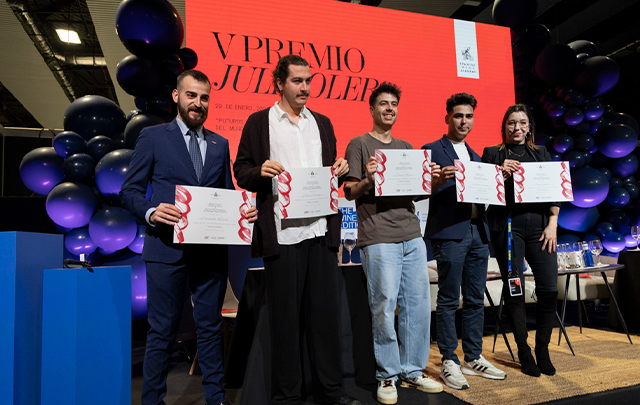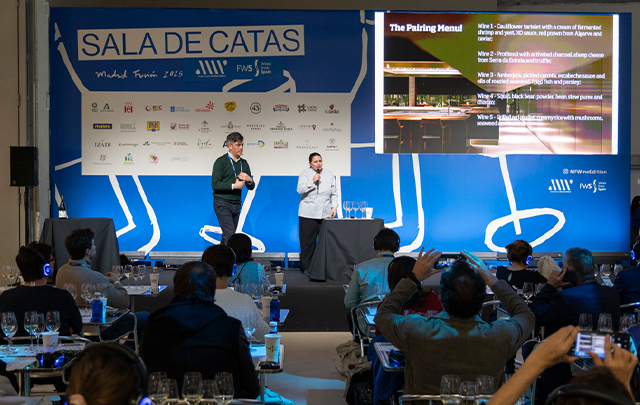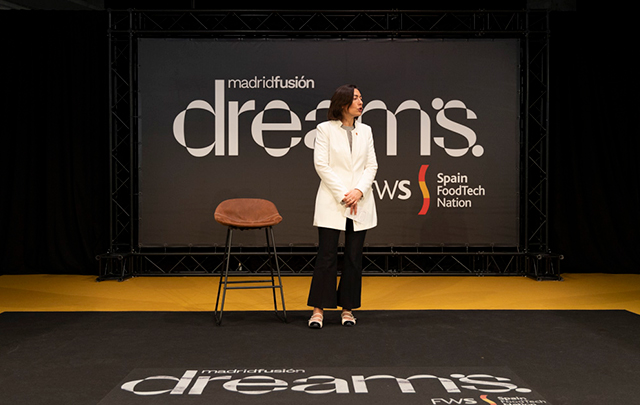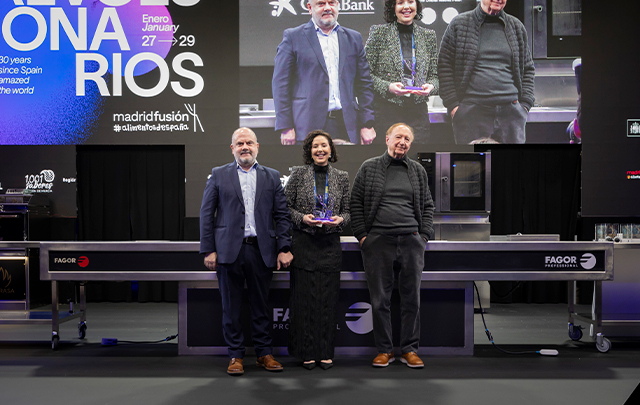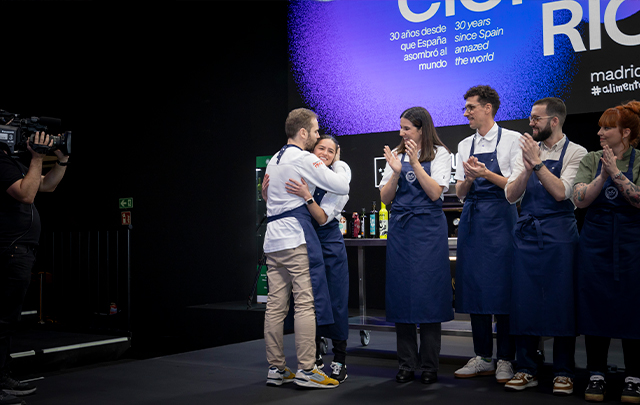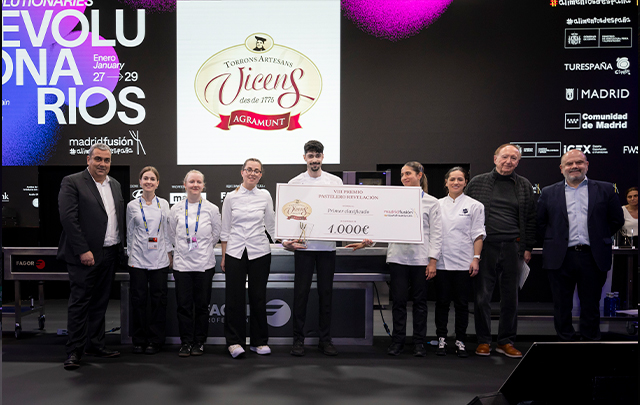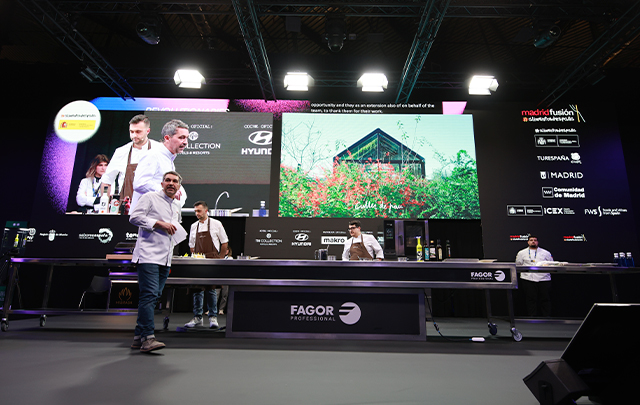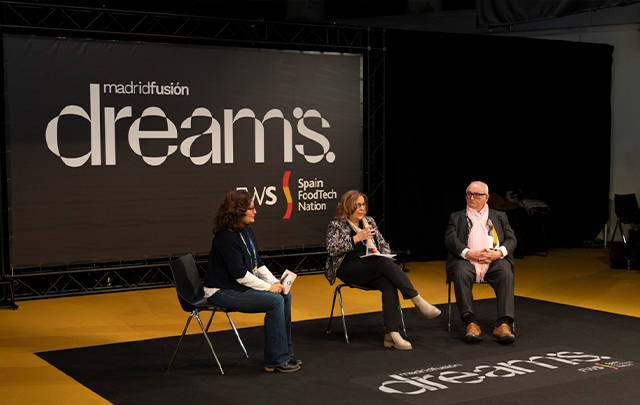News
The protagonists of the movement that revolutionised world cuisine reclaim their relevance and the need to build on their legacy
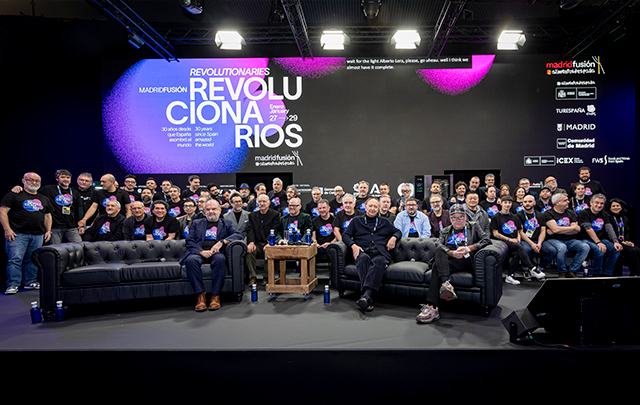
Madrid Fusión Alimentos de España brought together almost fifty personalities from the world of international cuisine and gastronomy to pay tribute to the revolutionaries who reinvented cuisine 30 years ago. More than a tribute, it was a resounding and unanimous affirmation of their relevance. Journalists, critics, chefs and intellectuals, led by the director of the conference, Benjamín Lana, and its president, José Carlos Capel, debated and expressed their opinions, and what seemed to be a tribute to those who had reached the end of their life's journey ended up being a confirmation that what began in a restaurant in the remote Cala de Montjoi on the Costa Brava is alive and well and continues to evolve in different forms.
What happened here was the birth of the new world cuisine, and the movements that have followed this revolution, such as Nordic cuisine, come from it,' says publicist Toni Segarra, a partner in the movement as a collaborator with the elBulli team. This 'new nouvelle cuisine' has put Spain at the centre of the world, which leads to the claim that gastronomy here should be a matter of state. Why isn't it? What we have to do, and we haven't done it yet, is to build on and consolidate the enormous talent that was revealed at the time,' he added.
The event was divided into three acts, corresponding to three points of view. In the first, some of the journalists and critics who lived through the creative revolution reflected on its genesis, context and characteristics. In the second, the brothers Ferran and Albert Adrià, the leader and the lieutenant, spoke, and in the final part, chefs of different generations and nationalities whose careers have been shaped by this experience took part.
The food critic Rafael García Santos recalled the context: 'In Spain we had just come out of a war and a dictatorship. This revolution was the result of people with a hunger to learn and to be the best'. In gastronomy, more groundbreaking things were happening than in any other cultural discipline,' adds Pau Arenós. It was as if all these people felt they had a mission. The journalist and author of 'Los genios del fuego' (1999), a book that provides a snapshot of the movement, stressed the need to continue telling the story of what happened: 'Young people don't know anything about it, and that's a tragedy, because they are the ones who will have to take over'.
American journalist Lisa Abend emphasised the international significance. The fame of elBulli brought an army of stagers from all over the world. It changed the world. His Italian colleague Marco Bolasco agreed: "elBulli was like the Shenghen of cooking. The universality and importance of the revolution was confirmed by Massimo Bottura, Gastón Acurio, Yoshihiro Narisawa and Heston Blumenthal. "The Peruvian movement would have been very difficult without the inspiration and support of the Spanish movement," said Acurio.
The leaders of the revolution, Ferran Adrià on the ideological side and Albert on the creative side, stressed that the paradigm shift was to see creativity as an attitude to life rather than a goal. Andoni Luis Aduriz, one of the geniuses to emerge from this hotbed, made a similar point. What I took away from elBulli, more than techniques, were values. When I left, Ferran told me: never stop creating'. Joan Roca also felt that he took values with him, and the decision to add El Celler de Can Roca to this revolution. "When the spotlight went out on El Bulli, the spotlight went on El Celler. This means that the spotlight of gastronomy was still in the same place. Spain is still a centre of attraction," he said.
Quique Dacosta pointed out that 'everything we have done since then may look different, but its essence is the perspective we have built together, shaking off the corsets and exercising freedom'. Carme Ruscalleda, a self-taught artist, did not go to elBulli, 'but having it nearby gave me the strength to do what I knew I wanted to do,' she said. In a later generation, Dani García brought this philosophy to Andalusian cuisine. I was lucky that the gentlemen I admired were always willing to help me,' he said gratefully.
The tribute ended with a family photo that brought together almost fifty people from different generations and culinary backgrounds, all of whom demonstrated the relevance of this revolution. The active leader, Ferran Adrià, took advantage of the end of the party to call on the gastronomic community to demand a strategic plan for gastronomy from the Spanish government.
Pop Japan and Aduriz's insightful questions
Although the tribute to the revolutionaries in an edition dedicated to them had the character of a momentous event, the Madrid Fusión auditorium was filled from the early hours of the morning with presentations that showed that this creative and innovative engine is still alive and taking on countless forms. Two of the heavyweights of the day were Yoshihiro Narisawa (Narisawa**, Tokyo), who analysed Japanese popular culture and how street food is closely linked to it. In the last 30 years, there have been many changes in Japanese gastronomy, and the aim of my cuisine is to connect it with everyday culture," he said. Andoni Luis Aduriz, rightly regarded as one of the most disruptive chefs in the world, gave a memorable talk that, based solely on questions, brought to the table the key issues of gastronomy, food, sustainability and the failings of contemporary society. Have you come here to find answers?" he said at one point. Answers, no, but stimulus for critical and reflective thought, all.
Two heavyweights of the day were Yoshihiro Narisawa (Narisawa**, Tokyo), who analysed Japanese popular culture and how street food is closely linked to it. In the last 30 years, there have been many changes in Japanese gastronomy, and the aim of my cuisine is to connect it with everyday culture," he said. Andoni Luis Aduriz, rightly regarded as one of the most disruptive chefs in the world, gave a memorable talk that, based solely on questions, brought to the table the key issues of gastronomy, food, sustainability and the failings of contemporary society. Have you come here to find answers?" he said at one point. Answers, no, but stimulation for critical and reflective viewing, all. Travel, migration and what the experience means in terms of culinary baggage was the focus of the talk by Argentinian chef Agustín Ferrando Balbí (Ando*, Hong Kong).
There was also space for exploring identity and sustainability in talks such as that of Joao Sa (Sála*, Lisbon), who reflected on 'Portugishness' as an argument for a gastronomic revolution; that of Fran Martínez and Cristina Díaz (Maralba **, Almansa, Albacete), who showed the multiple possibilities offered by La Mancha products such as game and ancient techniques such as marinating; Pedro Aguilera (Mesón S abor Andaluz *, Alcalá del Valle, Cádiz), who, under the title 'La tierra nos cría, la tierra nos come' (The land that raised us, the land that eats us), explained his symbiosis with the Extiércol community garden, which not only supplies his exciting cuisine with seasonal organic vegetables, but is also involved in a project to bring local organic vegetables and delicious traditional dishes to the public school in the village of Cuevas del Becerro.
Italian chefs Chiara Pavan and Francesco Brutto (Venissa*, Venice) explained in their presentation "Cooking while the climate changes" how they have incorporated invasive species that reach the Venetian lagoon into their cuisine. The environmental and sustainability argument, taken to its logical conclusion, is the main ingredient in their cuisine. In the search for alternatives to meat, the work of Marco Antonio Iniesta, chef at Frases* (Murcia), is leading the way, transforming vegetables into sausages with a quality comparable to traditional ones. Chickpeas have also played a leading role. Madrid's Institute for Rural, Agricultural and Food Research and Development (IMIDRA) has set out to make Spain's most deeply-rooted legume more relevant by developing new cultivation techniques, obtaining new varieties and improving their qualities. They have also developed a chickpea crisp using a controlled cooking and dehydration process. No less traditional in Spanish gastronomy is sherry vinegar. Juanlu Fernández (Lú, Cocina y Alma, **, Jerez de la Frontera) presented his work on obtaining flavoured vinegars by mixing them with vegetable smoothies.
There was also room for debate, with journalist Ignacio Medina, chefs Rafa Zafra (Estimar, Barcelona and Madrid) and Juanjo López (La Tasquita, Madrid), marine scientist and Estimar collaborator Arnau Subías and Caviar de Riofrío brand ambassador David Montalbán all taking part in the presentation 'Caviar, new gastronomic frontiers', chaired by José Carlos Capel. Although some (Medina and Capel) lamented the fact that caviar has become an almost ubiquitous substitute for salt, and others (Rafa Zafra in particular) advocated giving consumers the pleasure of eating something exquisite that is good value for money, all the panellists agreed that the lack of information and knowledge on the part of consumers contributes to the fact that there is a lot of caviar of questionable quality and of uncertain origin on the market. Today, all caviar is farmed, but there are very different farming methods and conditions," says Subías.
There are also very different conditions for handling the cured fish. The Argentine chef Diego Schattenhofer (Taste 1973 *, Tenerife), one of the most active Spanish chefs in collaborating with science, presented the Marine Enzymatic project (http://enzimaticomarino.com), a detailed study of the factors involved in the enzymatic action during maturation, carried out in collaboration with the University of La Laguna and the Canary Islands Oceanographic Centre IEO-CSIC. If we understand the process, we will be able to obtain much better results from the curing process and do it safely,' says the chef.

